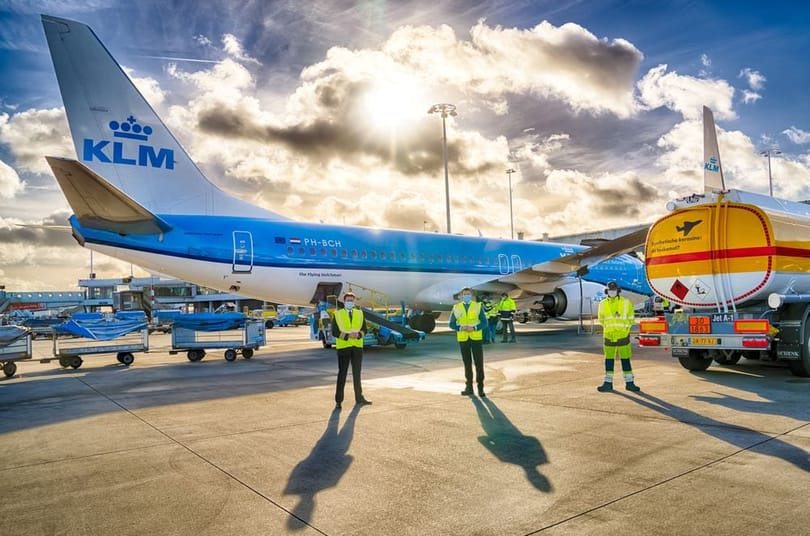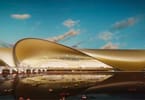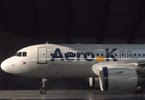- KLM flight from Amsterdam to Madrid last month in a world first flown on synthetic kerosene
- Development of aviation synthetic fuel and biofuel key to reducing greenhouse emissions
- Sustainable fuel will potentially make the biggest contribution to emissions reductions in new airline fleets
The Dutch government and KLM Royal Dutch Airlines today announced that carrier’s commercial flight from Amsterdam to Madrid last month was the world’s first flight powered with synthetic fuel.
Development and deployment of synthetic and biofuel alternatives to kerosene are seen as key to longer-term efforts to reduce greenhouse emissions from aviation.
The KLM aircraft used regular fuel mixed with 500 litres (132 gallons) of synthetic kerosene produced by Royal Dutch Shell with carbon dioxide, water and renewable energy sources, along with regular fuel to power the aircraft, a statement said.
“Making the aviation industry more sustainable is a challenge facing us all,” Dutch Infrastructure Minister Cora van Nieuwenhuizen said. “Today, with this world first, we are stepping into a new chapter of our aviation.”
Sustainable fuel will potentially make the biggest contribution to emissions reductions in new airline fleets, Pieter Elbers, who heads KLM, the Dutch arm of Air France KLM, said.
“The transition away from fossil fuel to durable alternatives is one of the biggest challenges facing the industry,” Elbers said.
WHAT TO TAKE AWAY FROM THIS ARTICLE:
- KLM flight from Amsterdam to Madrid last month in a world first flown on synthetic kerosene Development of aviation synthetic fuel and biofuel key to reducing greenhouse emissionsSustainable fuel will potentially make the biggest contribution to emissions reductions in new airline fleets.
- The KLM aircraft used regular fuel mixed with 500 litres (132 gallons) of synthetic kerosene produced by Royal Dutch Shell with carbon dioxide, water and renewable energy sources, along with regular fuel to power the aircraft, a statement said.
- Sustainable fuel will potentially make the biggest contribution to emissions reductions in new airline fleets, Pieter Elbers, who heads KLM, the Dutch arm of Air France KLM, said.























